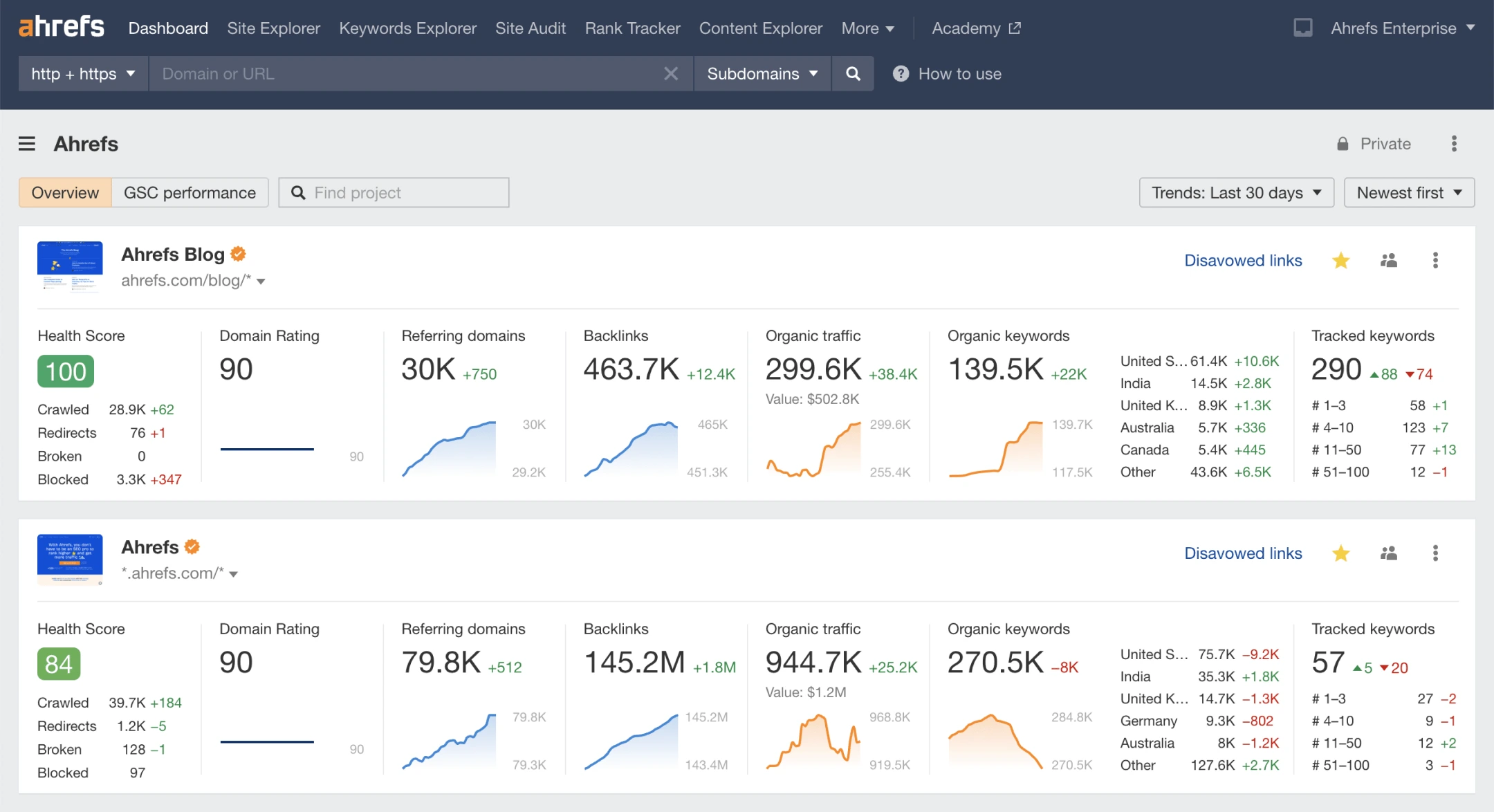How to Perform Keyword Research?

If you’re a content creator or an SEO enthusiast, then you know better than anyone, the importance of finding the right keywords. They’re like treasure maps, leading you to the pot of gold at the end of the search engine ranking rainbow. But how do you find these keywords?
Performing keyword research is an indispensable part of SEO. Through a strong keyword strategy, your users can find your business under relevant searches.
To find out how you can perform keyword research, read the steps listed below:
Brainstorm a List of Relevant Topics
The first step is to put on your thinking cap and brainstorm some potential keywords. Create a list of all relevant topics. You can create an Excel sheet with general categories of keywords that you want to rank for. These can be anything from product-related keywords to generic topics that might interest your target audience. You can use tools like Google’s Keyword Planner or AnswerThePublic to help you come up with ideas.
Evaluating Search Volume and Competition
Once you have a list of potential keywords, it’s time to evaluate their search volume and competition. The number of times a specific keyword is entered into Google by users each month is referred to as search volume. You want to find keywords that have a decent search volume but aren’t too competitive. For this step, you can use tools like Ahrefs, SEMrush, Ubersuggest, etc.
Analyzing Intent Next
You need to analyze the intent behind each keyword. Are people searching for information, products, or services? This will help you tailor your content to meet their needs
Refining Your List
After analyzing search volume, competition, and intent, it’s time to refine your list of keywords. Focus on the ones that have the most potential and make sense for your content.
Putting Your Keywords to Use
Now that you have your list of keywords, it’s time to put them to use. Incorporate them into your content in a natural way, without overstuffing them. It’s like adding seasoning to a dish. You want just enough to enhance the flavour, but not so much that it overpowers everything else.
Importance of Keyword Research and How it Helps in SEO?
Keyword research is vital for SEO as it reveals what people are searching for and how to optimize your website for those searches. By researching keywords, you’ll find the most relevant ones for your business and website content.
Here are a few specific ways that keyword research can help with SEO:
- It helps you understand your target audience: By conducting keyword research, you can learn more about the words and phrases that people are using when searching for products or services like yours. This can help you understand your target audience and tailor your marketing efforts to their needs and interests.
- It helps you identify new opportunities: Keyword research can help you identify untapped keyword opportunities that you may not have considered before. By targeting these keywords, you may be able to drive more targeted traffic to your website.
- It helps you optimize your website’s content: By including relevant keywords in your website’s content, you can make it more likely that your website will rank well for those keywords. This can help increase visibility of and drive more traffic to your website.
- It helps you track your progress: By tracking the performance of specific keywords over time, you can get a sense of how well your website is performing for those keywords and make any necessary adjustments to your SEO strategy.
What is Keyword Segmentation and Why is it Important?
Keyword segmentation is the process of dividing a group of keywords into smaller, more specific subgroups. This can be useful for several reasons:
- It helps you understand the search intent behind specific keywords: By segmenting your keywords into smaller groups, you can get a better understanding of the search intent behind each keyword.
- It helps you create more targeted content: By segmenting your keywords into smaller, more specific groups, you can create content that is more targeted and relevant to the needs of your audience. This can help to improve the quality of your content and make it more likely that your website will rank well in search results.
- It helps you track the performance of specific keywords: By segmenting your keywords into smaller groups, you can track the performance of specific subgroups of keywords and see which ones are driving the most traffic to your website. This can help you understand which keywords are most valuable to your business and adjust your SEO strategy accordingly.
- Keyword segmentation is an important part of any SEO strategy because it helps you understand the search intent behind specific keywords, create more targeted content, and track the performance of specific keywords.
What Are The Best Practices For Keyword Research Analysis & Segmentation?
There are several best practices for keyword research and analysis that can help you identify the most relevant and valuable keywords for your business or website:
Identify your Target Audience
Understanding your target audience is essential for identifying the right keywords to target. Consider your potential customers’ demographics, interests, and pain points when selecting keywords.
Use a Variety of Tools
There are many tools available that can help you identify relevant keywords, such as Google’s Keyword Planner, SEMrush, and Ahrefs. Using a variety of tools can help you get a more comprehensive view of the keyword landscape.
Create a List of Seed Keywords
Start by creating a list of seed keywords that are related to your business or website. These can be broad terms or specific phrases that you think your target audience might use to search for your products or services.
Use Long-Tail Keywords
Long-tail keywords are more specific and often have lower search volume than more general, short-tail keywords. However, they can be more valuable because they are more targeted and often have higher conversion rates.
Organize and Prioritize Your Keywords
After you’ve identified a list of potential keywords, it’s important to organize and prioritize them based on relevance and potential value. This will help you focus your efforts on the most important keywords for your business.
Monitor and Adjust Your Keyword Strategy
Keywords can change over time, so it’s important to regularly monitor the performance of your keywords and adjust your strategy as needed. This can help you stay up-to-date and relevant in your keyword targeting.
Conclusion
Keywords are at the heart of every successful SEO strategy. Without keyword analysis and research, you cannot expect to create sustainable and repeatable visibility. Thus, we ensure that keyword analysis and research are the bedrock of all our SEO strategies. Our SEO wizards work their magic day in and day out to use the best keyword analysis tools and planning techniques to make sure that your brand never misses out on opportunities.



